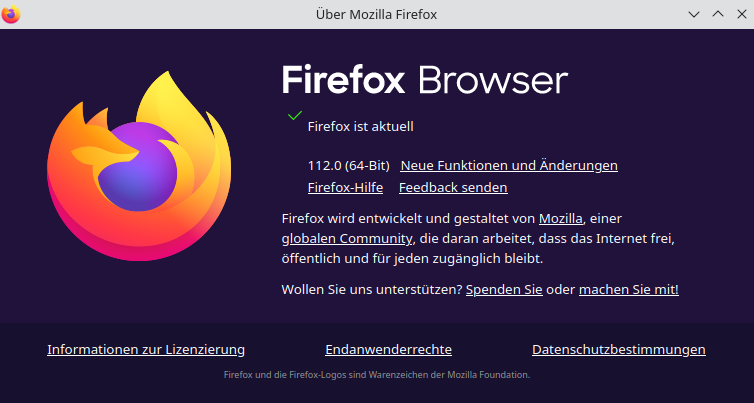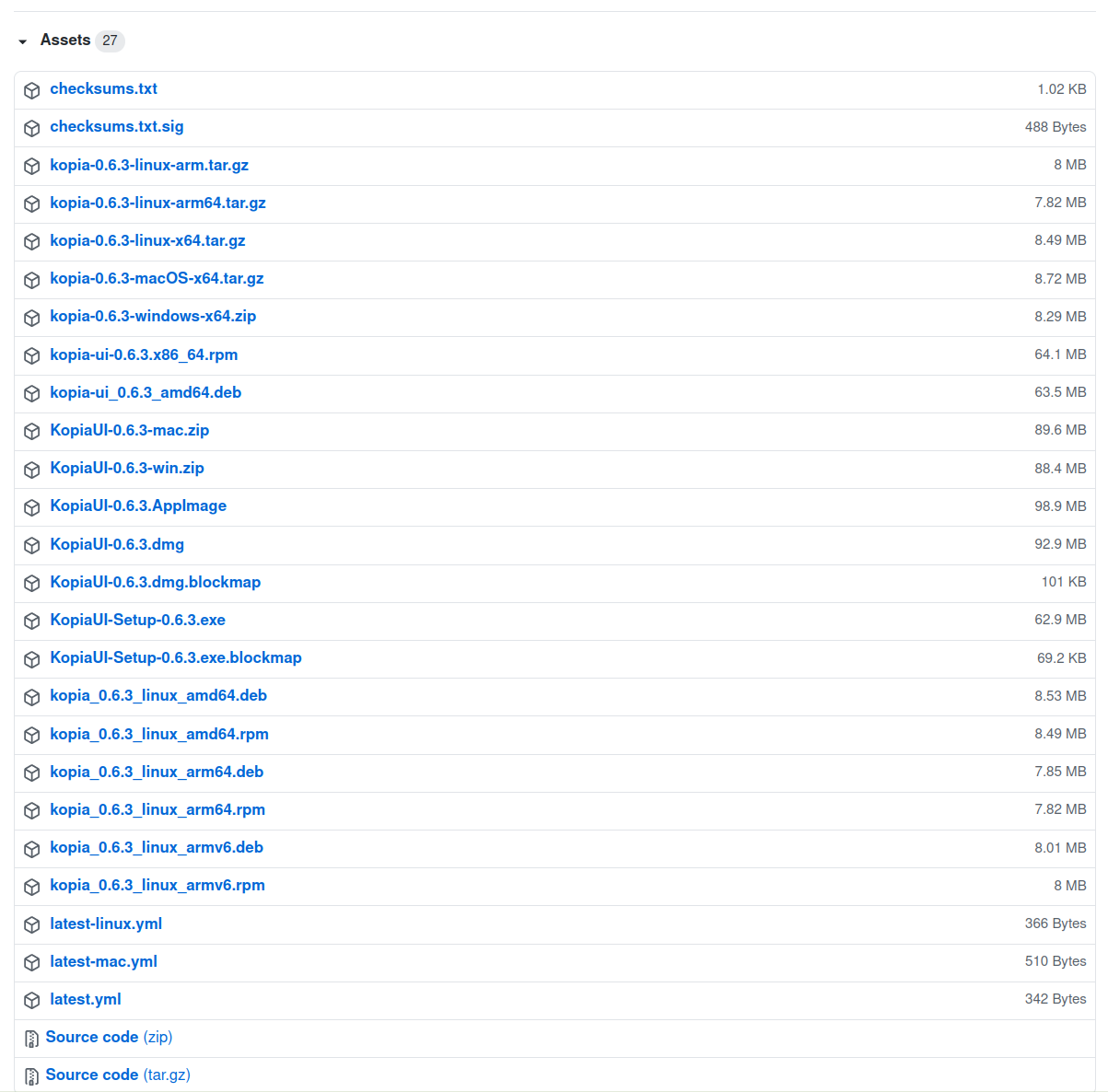Debian 13 Trixie releaseed
-
Ok, ich gebe zu, ich bin etwas spät dran. Aber manchmal kommt man nicht dazu, weil man alle möglichen Dinge zu erledigen hat.
Ich habe mittlerweile alle meine VMs, ob intern oder extern, bis auf eine umgestellt auf Debian 13. Die eine die noch fehlt ist CheckMK, weil die Unterstützung noch fehlt. Aber dabei habe ich direkt gelernt, wie man die CheckMK Version aktualisiert. Danke @Nico .

checkmk - Version aktualisieren
Ok, ich will mein CheckMK aktualisieren, als Vorbereitung CheckMK auf Debian Trixie zu bringen. Aktuell noch keine Version für Debian 13 Trixie vorhanden. ...
linux-nerds.org (linux-nerds.org)
Was war so in Vergangenheit mein Problem bei einem Upgrade? Der PHP-Server hat immer rum gezickt. Bei der FrOSCon 20 hatte ich dann eine private Lernsession, was ich dann wie ich wieder zu Hause war, direkt umgesetzt habe.
Wichtig ist, das man weiß welche PHP Version läuft und welche PHP-Module installiert sind.
php -vund
dpkg -l | grep phpgeben einem die Informationen. Hier ein Beispiel, vor dem Upgrade.
root@webserver1:~# dpkg -l | grep php ii php8.2-bcmath 8.2.29-1~deb12u1 amd64 Bcmath module for PHP ii php8.2-bz2 8.2.29-1~deb12u1 amd64 bzip2 module for PHP ii php8.2-cli 8.2.29-1~deb12u1 amd64 command-line interpreter for the PHP scripting language ii php8.2-common 8.2.29-1~deb12u1 amd64 documentation, examples and common module for PHP ii php8.2-curl 8.2.29-1~deb12u1 amd64 CURL module for PHP ii php8.2-fpm 8.2.29-1~deb12u1 amd64 server-side, HTML-embedded scripting language (FPM-CGI binary) ii php8.2-gd 8.2.29-1~deb12u1 amd64 GD module for PHP ii php8.2-gmp 8.2.29-1~deb12u1 amd64 GMP module for PHP ii php8.2-igbinary 3.2.13-1 amd64 igbinary PHP serializer ii php8.2-imagick 3.7.0-4 amd64 Provides a wrapper to the ImageMagick library ii php8.2-intl 8.2.29-1~deb12u1 amd64 Internationalisation module for PHP ii php8.2-mbstring 8.2.29-1~deb12u1 amd64 MBSTRING module for PHP ii php8.2-mysql 8.2.29-1~deb12u1 amd64 MySQL module for PHP ii php8.2-opcache 8.2.29-1~deb12u1 amd64 Zend OpCache module for PHP rc php8.2-phpdbg 8.2.7-1+0~20230609.23+debian11~1.gbp21561a amd64 server-side, HTML-embedded scripting language (PHPDBG binary) ii php8.2-readline 8.2.29-1~deb12u1 amd64 readline module for PHP ii php8.2-redis 5.3.7+4.3.0-3 amd64 PHP extension for interfacing with Redis ii php8.2-sqlite3 8.2.29-1~deb12u1 amd64 SQLite3 module for PHP ii php8.2-xml 8.2.29-1~deb12u1 amd64 DOM, SimpleXML, XML, and XSL module for PHP ii php8.2-xsl 8.2.29-1~deb12u1 all XSL module for PHP (dummy) ii php8.2-zip 8.2.29-1~deb12u1 amd64 Zip module for PHPDie nächste Überlegung war, meine php.ini ist stark angepasst. Somit muss ich die auch unbedingt hinterher auch ändern, sonst gibt es nur Probleme. Schnell schauen, welche aktiv ist. Das könnte man so machen.
root@webserver1:~# php -i | grep "Loaded Configuration File" Loaded Configuration File => /etc/php/8.2/cli/php.iniDie sicher ich mir dann eben mal weg.
cp /etc/php/8.2/cli/php.ini /rootJetzt habe ich alle Infos zusammen und kann die VM auf Debian 13 upgraden. Danach ist es wichtig die ganzen PHP Module aus der Liste, z.B. php8.2-bcmath als neue Version zu installieren. Debian 13 nutzt jetzt PHP 8.4. Also müssen wir das hier machen
apt install php8.4-bcmathDanach mit allen anderen Files, kleine Fleißaufgabe.
Nächster Schritt wäre dann die php.ini auszutauschen.
cp /root/php.ini /etc/php/8.2/cli/php.iniJetzt sind wir schon fast am Ziel, aber die Webseiten wollen immer noch nicht. Argh, nachdenken.... Es klingelt

location ~ \.php$ { location ~ \.php$ { fastcgi_pass unix:/var/run/php/php8.2-fpm.sock; fastcgi_split_path_info ^(.+\.php)(/.+)$; fastcgi_index index.php; include fastcgi_params; fastcgi_param SCRIPT_FILENAME $document_root/$fastcgi_script_name; } }In meiner joomla.conf sieht es wie oben gepostet aus. Diese Version gibt es natürlich nicht, wir nutzen ja jetzt 8.4 Also, den Block ändern.
location ~ \.php$ { location ~ \.php$ { fastcgi_pass unix:/var/run/php/php8.4-fpm.sock; fastcgi_split_path_info ^(.+\.php)(/.+)$; fastcgi_index index.php; include fastcgi_params; fastcgi_param SCRIPT_FILENAME $document_root/$fastcgi_script_name; } }Nach den Änderungen, alles mal neu laden.
systemctl restart php8.4-fpm nginxJetzt läuft der aktualisierte PHP-Webserver auf der neuen Debian Version.
Eine Änderung, die man aktuell noch per Hand machen muss ist die Formatänderungen für die apt sources.
Beispiel
deb http://deb.debian.org/debian trixie main contrib non-free non-free-firmware # deb-src http://deb.debian.org/debian bullseye main contrib non-free deb http://deb.debian.org/debian trixie-updates main contrib non-free non-free-firmware # deb-src http://deb.debian.org/debian bullseye-updates main contrib non-free # deb http://deb.debian.org/debian bullseye-backports main contrib non-free # deb-src http://deb.debian.org/debian bullseye-backports main contrib non-free deb http://security.debian.org/debian-security trixie-security main contrib non-free non-free-firmware # deb-src http://security.debian.org/debian-security bullseye-security main contrib non-freeNach der Umstellung sieht das dann wie folgt aus.
# Modernized from /etc/apt/sources.list Types: deb URIs: http://deb.debian.org/debian/ Suites: trixie Components: main contrib non-free non-free-firmware Signed-By: /usr/share/keyrings/debian-archive-keyring.gpg # Modernized from /etc/apt/sources.list Types: deb URIs: http://deb.debian.org/debian/ Suites: trixie-updates Components: main contrib non-free non-free-firmware Signed-By: /usr/share/keyrings/debian-archive-keyring.gpg # Modernized from /etc/apt/sources.list Types: deb URIs: http://security.debian.org/debian-security/ Suites: trixie-security Components: main contrib non-free non-free-firmware Signed-By: /usr/share/keyrings/debian-archive-keyring.gpgDas modernisieren macht man mit
apt modernize-sourcesIch meine gelesen zu haben, das dieses Format mit Debian 14 endgültig umgestellt wird.
Fazit
Bis auf Kleinigkeiten ging alles problemlos, meistens bin ich aber das Problem
 Somit habe ich jetzt wieder Ruhe bis zur nächsten Debian Version. Diese hört auf den Namen
Somit habe ich jetzt wieder Ruhe bis zur nächsten Debian Version. Diese hört auf den NamenDebian 14 forkyUnd diese Version ist dann ab sofort der testing stage, für Menschen die es aktueller mögen.




